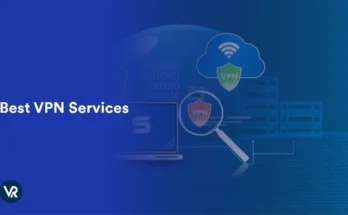In 2025, the world stands at the threshold of a new computing era. Quantum computing services are no longer just a theoretical concept or futuristic buzzword—they are fast becoming a practical solution to some of the world’s most complex problems. From drug discovery to financial modeling and cybersecurity, the applications of quantum computing in 2025 are vast and transformative.
But what exactly are quantum computing services, and how are they reshaping industries in 2025? In this article, we’ll take a deep dive into the world of quantum computing—exploring its core concepts, the major players in the market, real-world applications, and what businesses and individuals can expect from this emerging technology.
Let’s begin our journey into the realm of quantum computing technology.
What Is Quantum Computing?
Before we talk about services, it’s essential to understand what quantum computing is. Unlike classical computers that use bits (0s and 1s), quantum computers use qubits, which can be both 0 and 1 simultaneously thanks to quantum superposition.
This allows quantum processors to perform parallel computations, offering exponential speed-up for specific tasks such as factoring large numbers, simulating molecules, and solving optimization problems.
In simple terms, quantum computers can solve problems that would take classical computers thousands of years—in a matter of minutes.
What Are Quantum Computing Services?
Quantum computing services refer to cloud-based or enterprise-level platforms that provide access to quantum processing units (QPUs) or quantum simulators. These services allow developers, researchers, and businesses to run quantum algorithms without owning expensive quantum hardware.
As of 2025, these services have matured to support:
- Hybrid quantum-classical computing models
- Quantum-as-a-Service (QaaS)
- Quantum development kits (QDKs)
- Quantum simulation and emulation tools
- Integration with AI and machine learning
Why 2025 Is a Breakthrough Year for Quantum Computing
The year 2025 marks a tipping point in the quantum computing industry. Several breakthroughs have pushed the field from experimental to practical, including:
- Improved Qubit Stability: Better error correction techniques now allow for more reliable quantum computations.
- Increased Qubit Counts: Providers like IBM, Google, and IonQ now offer machines with over 1,000 qubits.
- Cloud-Based Quantum Access: Quantum hardware is available through major cloud platforms like AWS, Azure, and Google Cloud.
- Enterprise Adoption: Major industries like pharmaceuticals, automotive, and finance are actively integrating quantum into their workflows.
With these advances, quantum computing services in 2025 are no longer exclusive to researchers—they’re becoming accessible to businesses of all sizes.
Top Companies Offering Quantum Computing Services in 2025
Here are the key players shaping the quantum computing service market:
1. IBM Quantum
IBM remains a leader in the quantum race. Their IBM Quantum Services allow users to run quantum algorithms on real quantum hardware via the cloud. Key features include:
- Qiskit SDK
- IBM Quantum Composer
- Dynamic Circuits
- Quantum Safe Cryptography
IBM plans to release its Condor 1121-qubit processor this year, promising unmatched performance.
2. Google Quantum AI
Google made headlines back in 2019 with its claim of quantum supremacy. In 2025, Google Quantum AI offers cloud-based access to its Sycamore processor with enhanced capabilities.
- Integration with TensorFlow Quantum
- Quantum-classical hybrid development
- Research partnerships in materials science and AI
3. Microsoft Azure Quantum
Azure Quantum is a comprehensive ecosystem that integrates both quantum and classical computing. Microsoft’s strengths lie in:
- Q# programming language
- Partnerships with IonQ, Quantinuum, and Rigetti
- Scalable enterprise solutions
- Seamless integration with Azure cloud services
4. Amazon Braket
Amazon’s Braket platform provides access to various quantum hardware types, including superconducting and trapped ion qubits.
- Pay-as-you-go quantum computing
- Access to machines from Rigetti, Oxford Quantum Circuits, and IonQ
- Quantum circuit simulator tools
5. D-Wave Quantum Cloud
D-Wave focuses on quantum annealing for optimization problems. Its Leap platform offers:
- Real-time quantum cloud access
- Industry-specific quantum applications
- Hybrid solver services
Real-World Applications of Quantum Computing Services in 2025
1. Drug Discovery and Molecular Simulation
Pharmaceutical companies like Pfizer and Roche are leveraging quantum computing for drug discovery. Quantum simulations help in modeling complex molecules and predicting how drugs interact with biological systems, drastically cutting down the R&D time.
2. Financial Modeling and Risk Analysis
Banks and hedge funds use quantum computing services for portfolio optimization, fraud detection, and Monte Carlo simulations. Quantum algorithms offer faster and more accurate financial insights.
3. Supply Chain Optimization
Companies like DHL and Volkswagen use quantum algorithms to optimize delivery routes, reduce fuel consumption, and manage warehouse logistics—enhancing operational efficiency.
4. Cybersecurity
Post-quantum cryptography is a hot topic in 2025. With the threat of quantum-enabled cyberattacks, organizations are turning to quantum-safe encryption methods. Services like IBM and Microsoft are actively offering tools to help clients transition.
5. Artificial Intelligence
Quantum-enhanced machine learning models are being developed using quantum neural networks. This allows for faster training times and better performance in data-heavy tasks such as natural language processing and image recognition.
Benefits of Using Quantum Computing Services
- Cost-Effective: No need to invest in quantum hardware.
- Scalability: Pay-as-you-go and enterprise-level scalability.
- Flexibility: Use simulators for development and real hardware for testing.
- Collaboration: Work with global teams in shared cloud environments.
- Innovation Acceleration: Prototype faster and go to market sooner.
How to Get Started with Quantum Computing Services
If you’re curious about entering the world of quantum computing in 2025, here’s how to start:
- Choose a Platform: Select from AWS Braket, IBM Quantum, Azure Quantum, or others.
- Learn a Quantum Language: Python-based SDKs like Qiskit, Cirq, and Q# are widely used.
- Start with Simulators: Before running code on real quantum computers, use emulators to debug and test.
- Access Real Hardware: Most platforms offer limited free access to actual quantum processors.
- Join the Community: Participate in forums, open-source projects, and quantum hackathons.
Challenges and Limitations in 2025
Despite its potential, quantum computing in 2025 still faces hurdles:
- Error Rates: Qubits are fragile and prone to decoherence.
- Limited Qubit Counts: Although increasing, most systems can’t handle highly complex problems yet.
- Lack of Skilled Workforce: Quantum computing demands expertise in physics, mathematics, and programming.
- High Cost of Advanced Services: Enterprise-grade solutions remain expensive for small businesses.
That said, progress is accelerating, and every month brings new advancements.
The Future of Quantum Computing Services Beyond 2025
Looking beyond 2025, experts predict:
- 100,000+ qubit systems within a decade
- Mainstream enterprise adoption across sectors
- Integration with blockchain, IoT, and edge computing
- Rise of quantum AI and quantum machine learning
- Emergence of quantum internet for secure communication
Investments are pouring in, with governments, tech giants, and startups competing to lead the quantum revolution.
How Businesses Can Prepare
For companies eyeing the quantum future, now is the time to:
- Assess Use Cases: Identify how quantum can benefit your industry.
- Build Internal Knowledge: Train teams in quantum fundamentals.
- Partner with Providers: Collaborate with cloud platforms for pilot programs.
- Stay Informed: Follow research publications and quantum news.
Early adopters will have a competitive edge in innovation, cost savings, and problem-solving capabilities.
Final Thoughts: Embracing Quantum in 2025
The evolution of quantum computing services in 2025 is nothing short of revolutionary. With increasing accessibility, enterprise integration, and real-world applications, quantum computing is no longer the future—it’s the present.
Whether you’re a tech enthusiast, a developer, or a business executive, now is the time to engage with quantum cloud services. The technology is ready, and the benefits are real. From improving healthcare to securing global communications, the power of quantum is here to transform our digital world.
So, are you ready to step into the quantum age?




